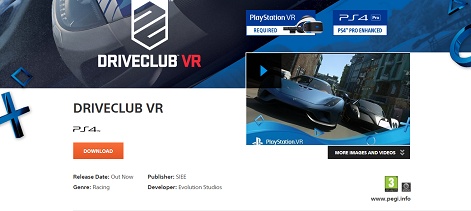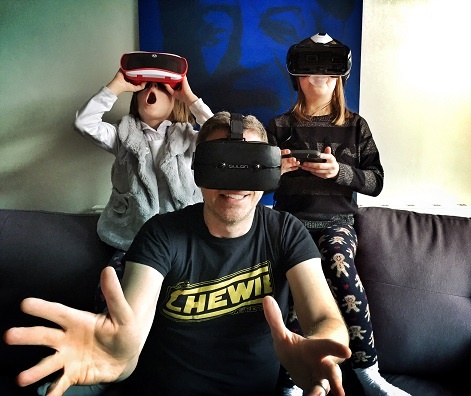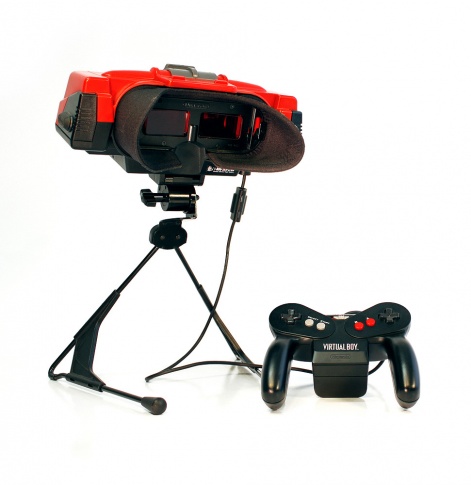We ask our industry panel - the brightest and sharpest VR professionals from around the world - one question about the VR industry, business, technology or trending stories every week.
With a lack of research data into the effects of VR on brain development or vision in young children, should we be concerned about potential damage? Or is this the 21st Century version of 1950s’ fears that staring at a TV would make children go blind?
Simon Barratt, Director at Barog Game Labs
“With my UKIE ‘VR/AR/MR subgroup’ hat on, this is an area that we’re looking into and we’re talking with researchers looking at these exact concerns to help provide more guidance.
“As a parent, I allow my 10-year-old daughter to play for very short bursts on various headsets and games. As she correctly pointed out, we do have some weird messaging as an industry when you’re told that PS VR isn’t for under 12s and then a PEGI 3+ age certificate appears!
“Hopefully, we’ll have more research data over time - as obviously these tests take time - and can make safe guidance.”

We must be ready to respond with integrity as an industry to the moral panic around VR.Catherine Allen
Catherine Allen, VR producer and strategist
“There will be a moral panic around VR and the effect of VR on kids is highly likely to come into it. Many forms of new technology or media have stimulated a moral panic; comic books, VHS tapes, MP3s and even the written word! This panic is usually catalysed, but not created by, the press. Moral panics may exaggerate, but they don't stem from a vacuum. This is why we must be ready when it happens to respond with integrity as an industry.
“There is not an inherent problem with making VR for kids that we know of. The truth is, we just don't know - testing hasn't been done enough on children and there hasn't been time yet for any longitudinal studies. VR could be fantastic for kids - it could be a supertool for learning and personal development. Or it could confuse children about what's real and what's isn't, playing with their whole sense of reality and self.
“My advice to anyone considering flouting the age limits of the major platforms is to understand the risk. Implement ways to test and mitigate this risk. Treat this powerful new tool with a sense of responsibility and together we'll grow an industry that is the best that it can be.”
Dean Johnson, Head of Innovation at Brandwidth
“I’m clearly an awful parent as I’ve prioritised fun and exploration over safety. My poor daughters always have the latest technology thrust upon them as they offer such direct unfiltered feedback. They know what works and what’s relevant - and if it’s going to fall apart, it will in their hands!
“Hattie (7) experienced her first VR when she was only three. Her eyeballs didn’t explode and she wasn’t (overly) traumatised by rollercoasters, sharks attacks or the zombie apocalypse. She does however have a neck like Mike Tyson. Olivia (11) spent two years hassling me for VR Minecraft. Finally, within two minutes of exploring the finished product, she was back on her iPad saying, “Nah, it’s not as good in VR”.”

Governments will eventually regulate VR and impose age limits as they deem necessary.Alexandre Tomic
Alexandre Tomic, Co-Founder at SlotsMillion
“We’ve had the same of debate for videogames, the internet, sugar, coffee, red meat, etc. It’s obvious that we will have to study the effects of prolonged use of VR on the brain, because this new platform is so immersive that it may affect the way we perceive time and reality and that at the end may have negative effects.
“But in the past, we’ve never asked an industry to provide such research. This is the duty of governments, which will eventually regulate VR and impose age limits as they deem necessary. People say VR is frightening, but so, sometimes, is life, and children should be protected from the frightening aspects of VR in the same way they are sheltered from frightening aspects of life.”
Jonathan Wagstaff, Country Manager - UK & IE at CONTEXT
"I do wonder if HTC, Sony, and Oculus remember the Ghost of VR Past, and the disastrous public relations launch of Nintendo's Virtual Boy in Japan. Local law meant that manufacturers were liable for any ill effects encountered by consumers and so Nintendo duly slapped stark warning labels all over the packaging. Parents were given the choice of potentially harming their children or waiting a few weeks for the conventional Sega Saturn. Ironically, a contemporary report from the Schepens Eye Research Institute in Boston concluded that, "...[f]ar from being bad for your eyes, the Virtual Boy was in fact pretty good for them", but sadly for Nintendo the damage had already been done.
“A huge amount of work has been done to mitigate the potential physical problems induced through VR and the concerns of VR developers now are more focused on the potential psychological problems that can occur with high-fidelity VR. A regressive simulation that takes US marines back to a virtual Iraq to treat PTSD could cause such symptoms in younger people rather than treat them. Many analysts have commented that the horror genre is a natural fit for VR, but it's also likely to cause far more distress than any other category on a highly-immersive VR platform."

I don't think anyone believes 12-year-olds using VR for five minutes will impact eyesight.Ed Daly
“My instinct is that as long as children using VR are doing so for just a few minutes here and there, then there won't be a problem - and personally I wouldn't feel comfortable with my kids using VR more than that anyway. Professionally, I'd find it helpful for the guidance to take extent of use into consideration, because as it stands we have to rule out using VR at events and attractions when, say, 12-year-olds would be using it for maybe five minutes - and I don't think anyone believes that will impact eyesight.”













